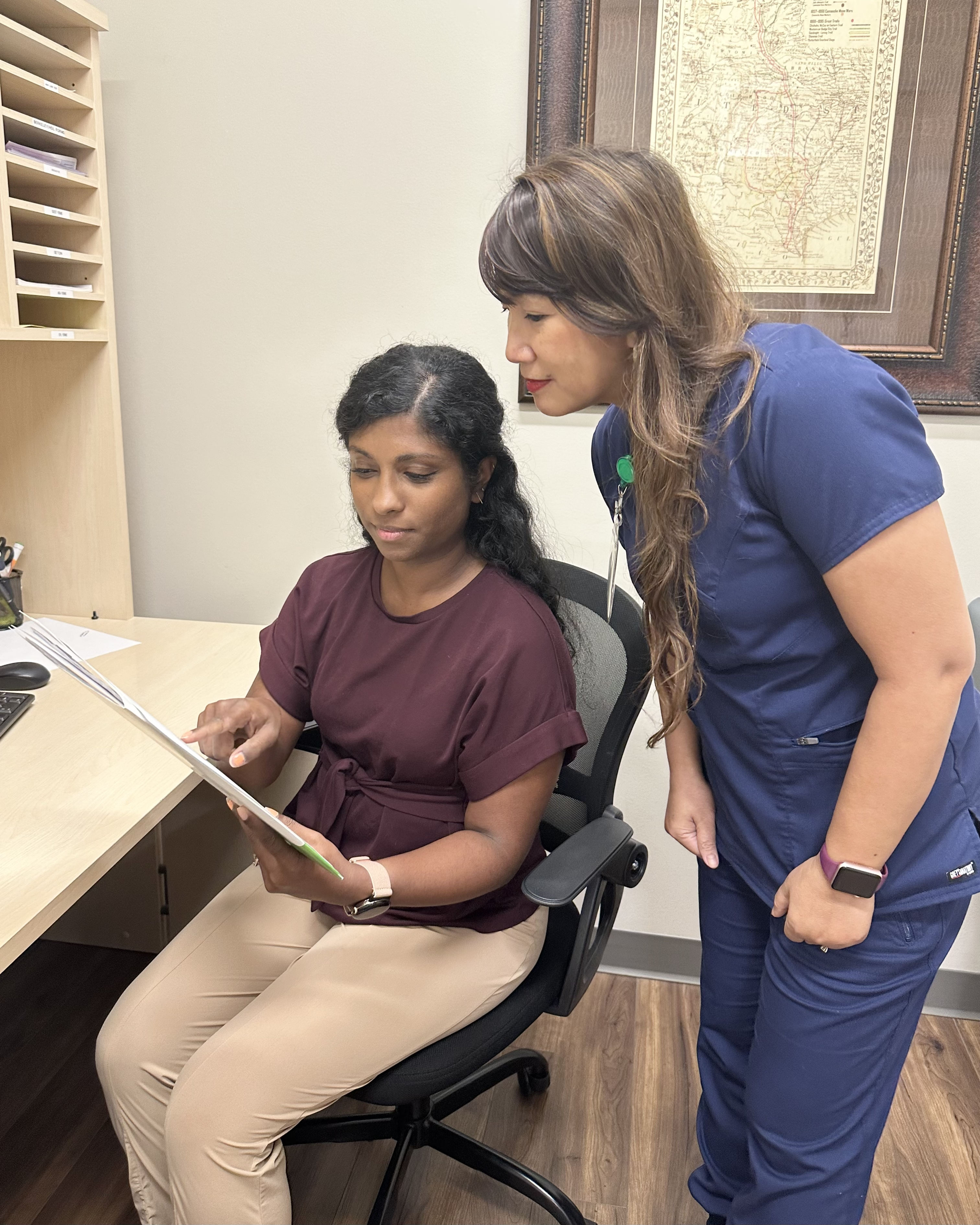One of the most common causes of liver disease, nonalcoholic fatty liver disease (NAFLD) occurs when an abnormal amount of fat builds up liver cells. Affecting about 25% of adults, NAFLD often has no symptoms, especially in early stages, and can be easily missed in routine checkups.
The condition can lead to liver swelling and damage, can cause liver cancer or failure, and puts patients at higher risk for heart disease.
Risk factors for NAFLD include high cholesterol, obesity, high blood pressure, type 2 diabetes and high triglyceride levels. A recent study found that there is also a connection between this increasingly common disease and hypothyroidism.
Hypothyroidism
An endocrine disorder, hypothyroidism occurs when the thyroid gland is not making enough thyroid hormones, which regulate the body’s growth, development and metabolism. Some symptoms of hypothyroidism include:
- Weight gain
- Fatigue
- Memory problems
- Slowdown in heart rate
- Increased sensitivity to cold
- Depression
- Muscle pain and weakness
- Joint stiffness, pain and swelling
- Dry, thinning hair
- Dry skin
- Fertility problems
- Menstrual cycle changes
- Constipation
- Elevated cholesterol
The Connection Between NAFLD and Hypothyroidism
Since researchers have only recently discovered the connection between NAFLD and hypothyroidism, more research is needed to learn exactly how and why the two conditions are connected.
In the meantime, it is known that total and low-density lipoprotein (LDL) cholesterol and triglyceride levels tend to be higher in those with hypothyroidism. Researchers believe hypothyroidism might cause NAFLD because of the increased levels of these types of fat in the liver. Leptin, a hormone produced by fat cells, may also be to blame since it can cause insulin resistance and lead to liver damage.
In hopes of shaping screening, prevention and treatment, future research is expected to study whether NAFLD causes hypothyroidism or vice versa, or if they simply occur at the same time. Researchers may also examine whether the connection exists because of general thyroid dysfunction or key thyroid functions themselves.
NAFLD Diagnosis
Whether discovered through routine blood work during an annual physical or blood tests specifically looking at the liver, NAFLD is usually found when liver enzyme levels are high. Further blood work can rule out other liver problems, and imaging — including MRI, CT scan, ultrasound and elastography — is typically used to diagnose NAFLD.
One of the first endocrinology clinics in Austin to offer the non-invasive procedure, Texas Diabetes & Endocrinology provides FibroScan, an innovative elastography exam that evaluates liver health and identifies liver issues including NAFLD.
FibroScan is conducted with an ultrasound to measure the amount of fat in the liver, identify any scarring, and evaluate other concerns.
NAFLD Treatment
Lifestyle changes are usually recommended to reverse or stop the progression of the disease:
- Eat a healthy diet
- Exercise regularly
- Lose weight, if overweight or obese
- Lower cholesterol and triglycerides
- Control diabetes
- Avoid alcohol
For more information on Texas Diabetes thyroid services and imaging, schedule a consultation with one of our board certified endocrinologists by requesting an appointment online or call (512) 458-8400.
Don’t forget to follow us on Facebook and Instagram and check back with us each month as we provide you with helpful health and wellness information.





